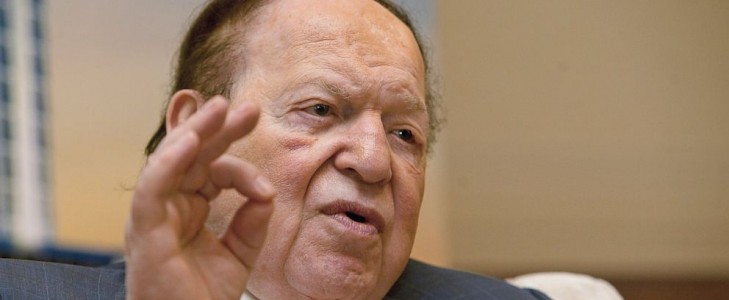With a $40 billion fortune that continues to grow every time Macau has a big month, Sheldon Adelson makes a pretty good opponent for online gaming. Sure, it doesn’t make sense – a guy who built his Las Vegas Sands empire on people’s casino losses is waging a war against internet gaming. But it’s happening, and with every campaign contribution that puts a Sen. Lindsey Graham in his pocket, Adelson becomes even more dangerous.
Adelson’s Crusade to Abolish Internet Gambling
But is banning online gaming across the United States something that’s even too tall of a task for Forbes’ eighth richest man? According to Slate Magazine, this very likely could be the case.
The popular current affairs site takes an in-depth look at Adelson’s crusade to abolish internet gambling. The piece rehashes a number of notable events in US online gaming history, including the UIGEA, Black Friday and State Senator Ray Lesniak’s push for New Jersey online gaming. But for poker players who’ve already read up on these events, the most interesting information from Slate comes from their recap of the major players in this game. Here’s one interesting excerpt from the article:
Adelson, a prominent backer of conservative political causes and head of the Las Vegas Sands casino empire, has pledged to spend “whatever it takes” to get Congress to ban Internet gambling outright. In March, Sen. Lindsey Graham and Rep. Jason Chaffetz introduced a bill that was written with the help of Adelson’s lobbyists to achieve that goal.
Meanwhile, industry giants like Caesars Entertainment and MGM Resorts have taken the opposite tack, banding together in an effort to legalize and tap into the growing market. Maneuvering quietly in the background are foreign entities, including the Isle-of-Man-based PokerStars, the world’s biggest online poker operator.
More States will look to join New Jersey, Nevada and Delaware in Offering Online Gambling
The Slate piece concludes that while these industry heavyweights continue battling over the legality of internet gaming in the US, more and more states will look to join New Jersey, Nevada and Delaware in offering the activity. And as this happens, the chances of Congress banning online gaming, and/or reversing the US Department of Justice’s interpretation of the Wire Act, will become far slimmer.
Assuming this scenario comes to fruition, most poker and casino enthusiasts would be happy. Of course, the dream is always for legal online gaming throughout the entire US. But having a large number of states offering online gambling is definitely preferable to Adelson successfully getting the activity banned.
